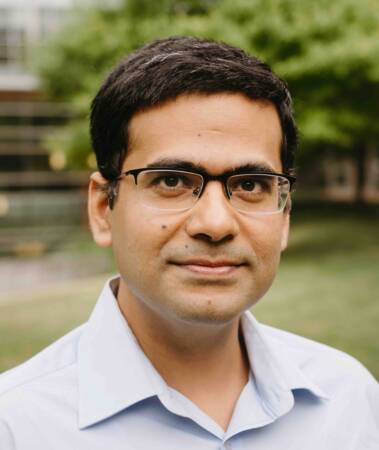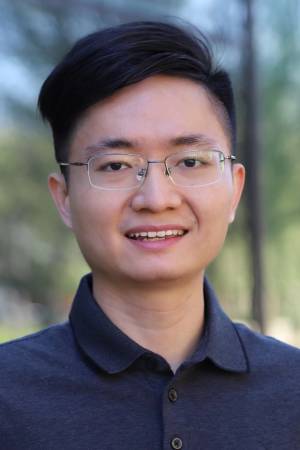RI Seminar
Robot Learning by Understanding Egocentric Videos
Abstract: True gains of machine learning in AI sub-fields such as computer vision and natural language processing have come about from the use of large-scale diverse datasets for learning. In this talk, I will discuss how we can leverage large-scale diverse data in the form of egocentric videos (first-person videos of humans conducting different tasks) [...]
What Makes Learning to Control Easy or Hard?
Abstract: Designing autonomous systems that are simultaneously high-performing, adaptive, and provably safe remains an open problem. In this talk, we will argue that in order to meet this goal, new theoretical and algorithmic tools are needed that blend the stability, robustness, and safety guarantees of robust control with the flexibility, adaptability, and performance of machine [...]
Can Robots Based on Musculoskeletal Designs Better Interact With the World?
Abstract: Living robots represent a new frontier in engineering materials for robotic systems, incorporating biological living cells and synthetic materials into their design. These bio-hybrid robots are dynamic and intelligent, potentially harnessing living matter’s capabilities, such as growth, regeneration, morphing, biodegradation, and environmental adaptation. Such attributes position bio-hybrid devices as a transformative force in robotics [...]
Soft Wearable Haptic Devices for Ubiquitous Communication
Abstract: Haptic devices allow touch-based information transfer between humans and intelligent systems, enabling communication in a salient but private manner that frees other sensory channels. For such devices to become ubiquitous, their physical and computational aspects must be intuitive and unobtrusive. The amount of information that can be transmitted through touch is limited in large [...]
Building Generalist Robots with Agility via Learning and Control: Humanoids and Beyond
Abstract: Recent breathtaking advances in AI and robotics have brought us closer to building general-purpose robots in the real world, e.g., humanoids capable of performing a wide range of human tasks in complex environments. Two key challenges in realizing such general-purpose robots are: (1) achieving "breadth" in task/environment diversity, i.e., the generalist aspect, and (2) [...]
Robots That Know When They Don’t Know
Abstract: Foundation models from machine learning have enabled rapid advances in perception, planning, and natural language understanding for robots. However, current systems lack any rigorous assurances when required to generalize to novel scenarios. For example, perception systems can fail to identify or localize unfamiliar objects, and large language model (LLM)-based planners can hallucinate outputs that [...]
Abstraction Barriers for Embodied Algorithms
Abstract: Designing robotic systems to reliably modify their environment typically requires expert engineers and several design iterations. This talk will cover abstraction barriers that can be used to make the process of building such systems easier and the results more predictable. By focusing on approximate mathematical representations that model the process dynamics, these representations can [...]
Autonomous Robotic Surgery: Science Fiction or Reality?
Abstract: Robotic assisted surgery (RAS) systems incorporate highly dexterous tools, hand tremor filtering, and motion scaling to enable a minimally invasive surgical approach, reducing collateral damage and patient recovery times. However, current state-of-the-art telerobotic surgery requires a surgeon operating every motion of the robot, resulting in long procedure times and inconsistent results. The advantages of [...]
Learning for Dynamic Robot Manipulation of Deformable and Transparent Objects
Abstract: Dynamics, softness, deformability, and difficult-to-detect objects will be critical for new domains in robotic manipulation. But there are complications--including unmodelled dynamic effects, infinite-dimensional state spaces of deformable objects, and missing features from perception. This talk explores learning methods based on multi-view sensing, acoustics, physics-based regularizations, and Koopman operators and proposes a novel multi-finger soft [...]








